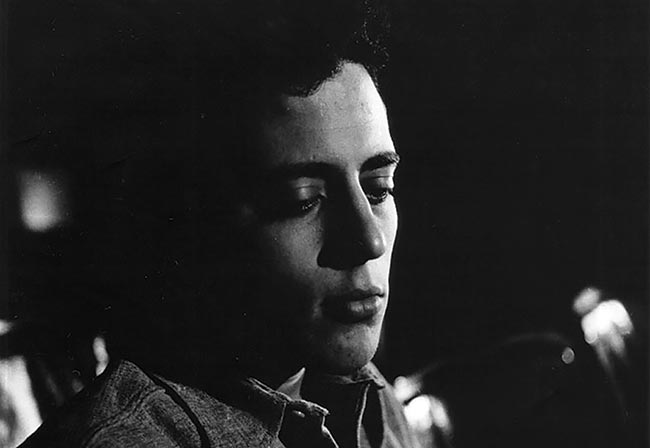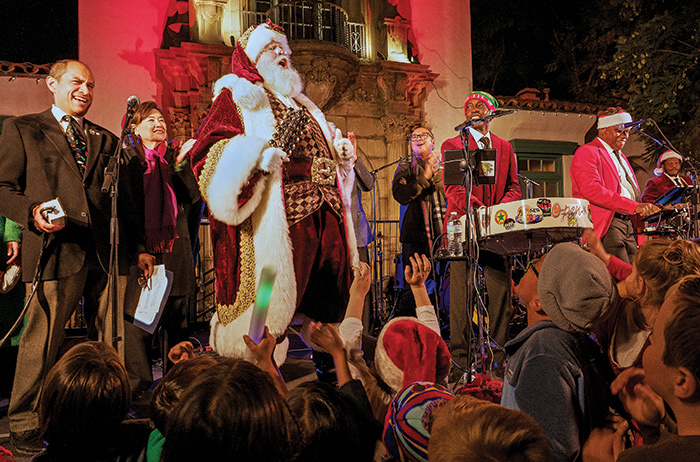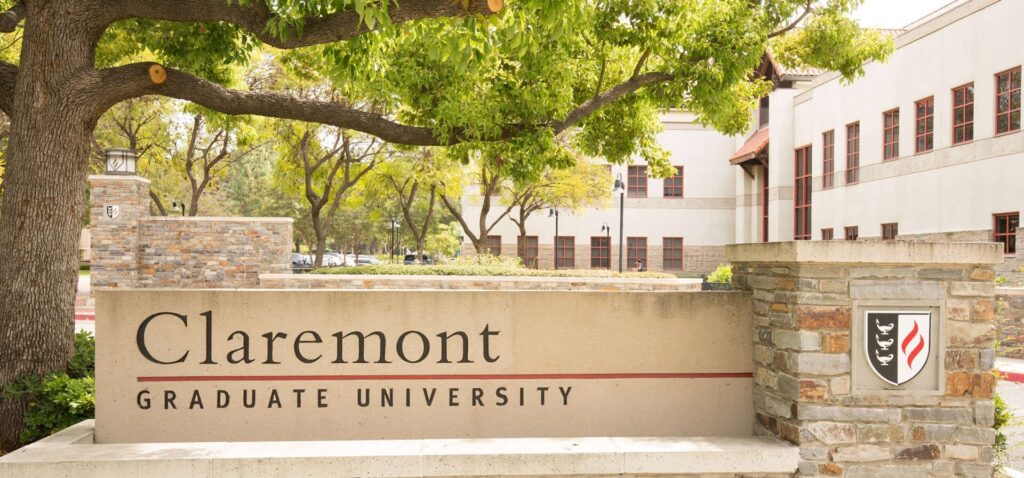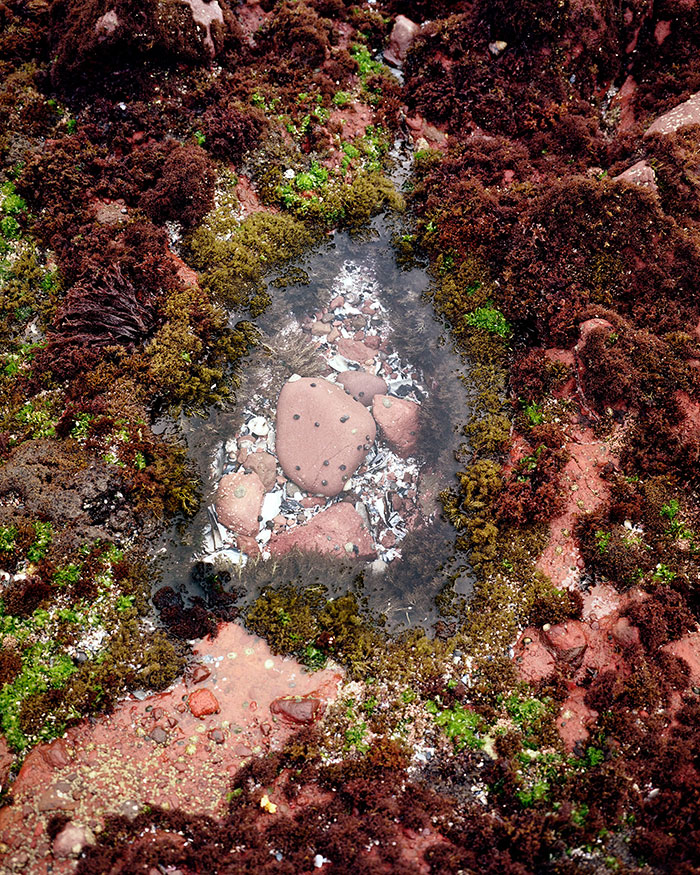Long gone, not forgotten: Tribute to poet Bert Meyers set for June 24

Bert Meyers, poet and Pitzer College professor, died in 1979 at age 51. “Bert Meyers: On the Life and Work of an American Master,” was published April 15 by Pleiades Press. Photo/courtesy of Daniel Meyers
by Andrew Alonzo | aalonzo@claremont-courier.com
The cadence and lyrical typography of Southern California poet Bert Meyers will be revived at 2 p.m. June 24 when his son and three poets read his work at the Claremont Helen Renwick Library, 208 N. Harvard Ave.
Organized by the Friends of the Claremont Library, the event will include his son Daniel Meyers and acclaimed poets Amy Gerstler, Dana Levin, and Maurya Simon.
“My father died 44 years ago in April,” Daniel Meyers said. “In some ways, it is right now, today, 44 years after his death, that he has reached his kind of highest level of appreciation and acclaim.”
The reading will serve as a tribute to the late poet who lived and taught in Claremont, and as a celebration of “Bert Meyers: On the Life and Work of an American Master,” which was released in April by Pleiades Press and features a selection of his best poetry alongside essays and appreciations from José Angel Araguz, Jim Bogen, Victoria Chang, Amy Gerstler, Garrett Hongo, Daniel Meyers, Barry Sanders, Ari Sherman, Maurya Simon, and Sean Singer, among others.
In “Bert Meyers: On the Life and Work of an American Master,” Ilya Kaminsky, author of “Dancing in Odessa,” has high praise for the late poet. “Bert Meyers is an American original — a brilliant poet whose use of tone and figurative language was so emotive, intelligent and nuanced, it became inimitable, became its own unique perspective on our world. I wouldn’t be surprised if mid-21st century scholars announce that in Bert Meyers we have overlooked the best poet of his generation.”
Bertram “Bert” Ivan Meyers was born in Los Angeles on March 20, 1928. The son of immigrants, a Romanian mother and a Polish Jewish father, he published five collections of poems, “Early Rain” (1960), “The Dark Birds” (1968), “Sunlight on the Wall” (1976), “Windowsills” (1979), and “The Wild Olive Tree” (1979).
He died in 1979 from lung cancer at the age of 51. A collection, “In a Dybbuk’s Raincoat: Collected Poems,” was published in 2007.
His son described his father’s childhood as rough and rebellious, with a strong distaste for school.
“He used to get in and out of trouble. He dropped out of one high school, got kicked out of another,” Daniel Meyers said. “With no high school diploma, he did a little bit of work at a kind of like art school thinking he’d want to be like an artist craftsman.”
He decided to become a poet at 19.
“He was sort of self-taught,” his son said. “He didn’t finish high school; he didn’t go to university, but he read everything he could get his hands on. He just devoured literature and poetry. He was a real working-class person, and he valued the craftsmanship when you make things with your hands, and he approached his poetry the same way.
“His [poems] are like fine crafted pieces. He owned the details.”
The poet worked as a laborer to get by, all the while crafting poems for small literary publications. “He dug ditches on lanes in the LA highways, he worked on farms, he worked in printing presses,” Daniel Meyers said.
This itinerant pattern was interrupted when he landed a job as a picture framer and gilder, a job he held for several years. He was also an activist, speaking out for the nascent Civil Rights Movement and decrying the Vietnam War. Outside of work, he frequented Los Angeles cafés with contemporaries such as poet Thomas McGrath, and photographer Elliott Erwitt, and other visionaries he called friends.
In 1957 he married Odette Sarah Miller, a French immigrant. They had a daughter, Anat Silvera, a year later. Daniel was born in 1960. The family moved to Claremont in 1964, the same year Bert Meyers was admitted to Claremont Graduate School (now Claremont Graduate University) on the basis of his poetry portfolio.
He taught poetry and literature at Pitzer College from 1967 to 1978. Although his children moved from Claremont in the mid-1970s, he remained until his untimely death in 1979. His legacy continues today through the many poets who cite him as an influence, including Dennis Cooper, Amy Gerstler, Garrett Hongo, and Mauyra Simon.
Simon, a former student, said she wanted to attend Pitzer to be instructed by Meyers. The late professor, described as a “walking encyclopedia of poetry,” inspired Simon to write concise poems that tapped into reader’s emotions.
“He has this amazing, really stunning use of metaphors,” Simon said of her late instructor’s poetry. “I think he was very influenced by Emily Dickinson, her concision, the economy of language that she employed, and her brilliance with metaphors as well.”
Simon read aloud how Meyers described a pebble as a “mites crude planet,” in the poem, “Pebble,” and a bat as “those weird umbrellas that open only at night,” from “With Animals.”
“In many of his poems, there’s this existential angst, and I think that’s part of [his style],” Simon said. “He often takes very mundane things and then offers really fresh insights about them or perceptions,” she said.
Simon went on to author and publish 10 volumes of poetry, including “The Wilderness: New and Selected Poems, 1980-2016,” the 2019 recipient of the Gold Medal in Poetry from the Benjamin Franklin Independent Booksellers Association. The 72-year-old will be one of four who will be reading at the Claremont Helen Renwick Library’s free 2 p.m. fourth Saturday poetry reading on June 24.
Asked why the public needs to know about Bert Meyers now, nearly five decades after his death, Simon said, “His poetry will enrich their lives. Because like any great art, it adds dimensions to our lives, it adds emotional richness and intellectual richness and pleasure and joy.”
Visit bertmeyers.com for more information.










0 Comments